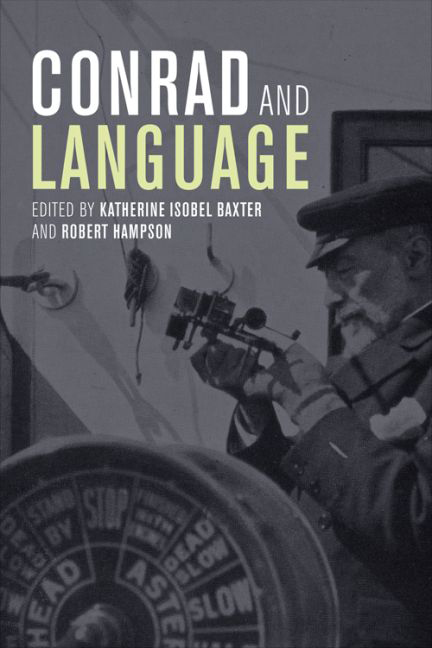Book contents
- Frontmatter
- Contents
- A Note on Texts
- Introduction
- 1 Conrad and Nautical Language: Flying Moors and Crimson Barometers
- 2 Navigating the ‘Terroristic Wilderness’: Conrad's Language of Terror
- 3 Conrad, G. E. Moore and Idealism
- 4 Conrad's Language of Passivity: Unmoving towards Late Modernism
- 5 The Powers of Speech in Conrad's Fiction
- 6 ‘Soundless as Shadows’: Language and Disability in the Political Novels
- 7 Conrad and Romanised Print Form: From Tuan Almayer to ‘Prince Roman’
- 8 Languages in Conrad's Malay Fiction
- 9 Gallicisms: The Secret Agent in Conrad's Prose
- 10 ‘The speech of my secret choice’: Language and Authorial Identity in A Personal Record
- 11 The Russian Redemption of The Secret Agent and Under Western Eyes
- Afterword
- Contributors
- Index
5 - The Powers of Speech in Conrad's Fiction
Published online by Cambridge University Press: 12 September 2017
- Frontmatter
- Contents
- A Note on Texts
- Introduction
- 1 Conrad and Nautical Language: Flying Moors and Crimson Barometers
- 2 Navigating the ‘Terroristic Wilderness’: Conrad's Language of Terror
- 3 Conrad, G. E. Moore and Idealism
- 4 Conrad's Language of Passivity: Unmoving towards Late Modernism
- 5 The Powers of Speech in Conrad's Fiction
- 6 ‘Soundless as Shadows’: Language and Disability in the Political Novels
- 7 Conrad and Romanised Print Form: From Tuan Almayer to ‘Prince Roman’
- 8 Languages in Conrad's Malay Fiction
- 9 Gallicisms: The Secret Agent in Conrad's Prose
- 10 ‘The speech of my secret choice’: Language and Authorial Identity in A Personal Record
- 11 The Russian Redemption of The Secret Agent and Under Western Eyes
- Afterword
- Contributors
- Index
Summary
For the language-minded critic, Conrad's works have always been a privileged field to explore. The ‘linguistic turn’ in the second half of the twentieth century produced many essays and books, some of which have become Conradian classics. Anne Enderwitz's recent essay on Chance, Conrad's most commercially successful novel, argues that whereas in ‘Heart of Darkness’ Marlow seems engaged in ‘melancholy negotiations of the problem of representation’, in the later novel Conrad's pragmatic approach to the affective power of language characterises both Marlow as a storyteller and the development of its female protagonist, Flora de Barral. Enderwitz argues that, if critics with an interest in affect tend to turn away from the linguistic, Conrad ‘sees no need to introduce a dividing line between affect and language’:
After all, the scene of Flora's abuse is narrated by four different people. In the light of this frame, any thought of unmediated access to affect seems ridiculous. If we take Conrad's approach to language seriously, affects may not be linguistic in themselves but can be effected by words, and they emerge and become intelligible in and through narrative.
There is, indeed, no need to separate affect from language. The argument of this chapter will be that the pragmatic touch is already at work in the early Marlow narratives but in a different mode, which may well account for their different impact on and reception from the reading public. The focus will be on ‘Youth’, ‘Heart of Darkness’, Lord Jim, Chance and Under Western Eyes (which Conrad undertook as a respite from Chance). My working hypothesis is that Conrad at his best explores the possibilities of narrative in the act, both pragmatic and ethical.
- Type
- Chapter
- Information
- Conrad and Language , pp. 82 - 98Publisher: Edinburgh University PressPrint publication year: 2016



